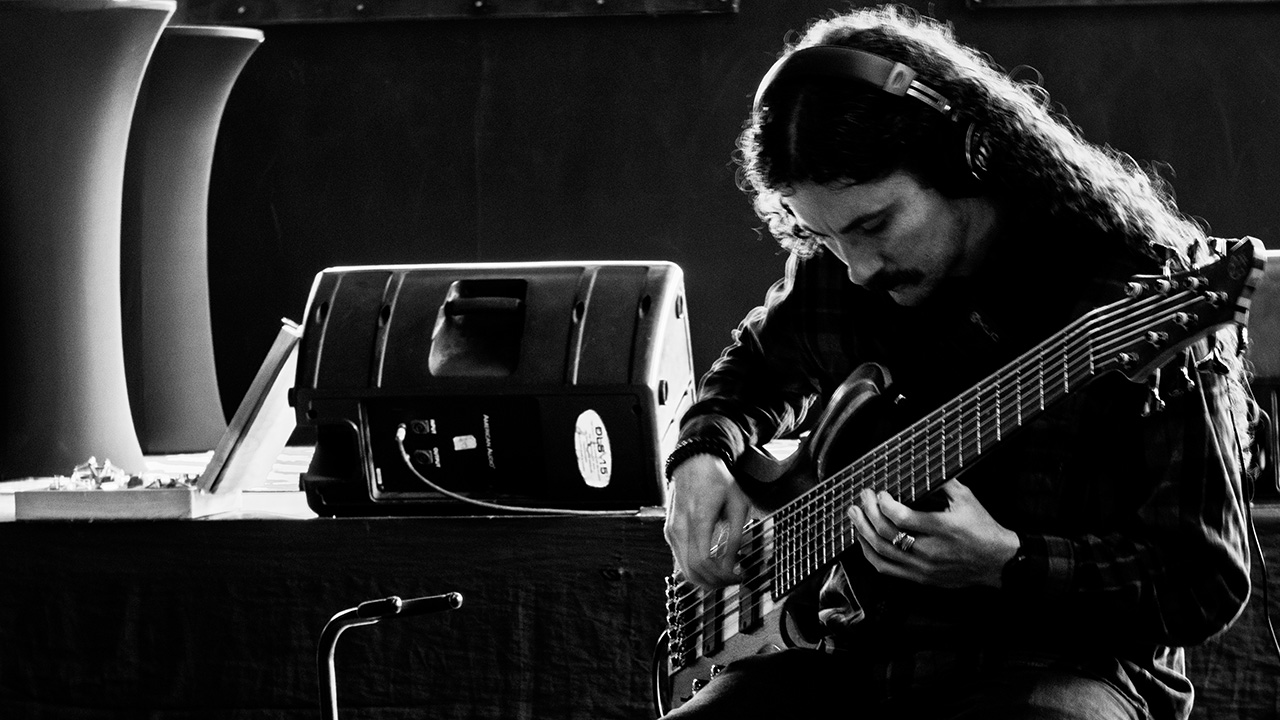Deon Estus moved to Dublin to play with Phil Lynott. He ended up giving George Michael (and Wham!) groove
George Michael could play bass – but it was Deon Estus who gave his songs groove, especially on 1987's Faith album...
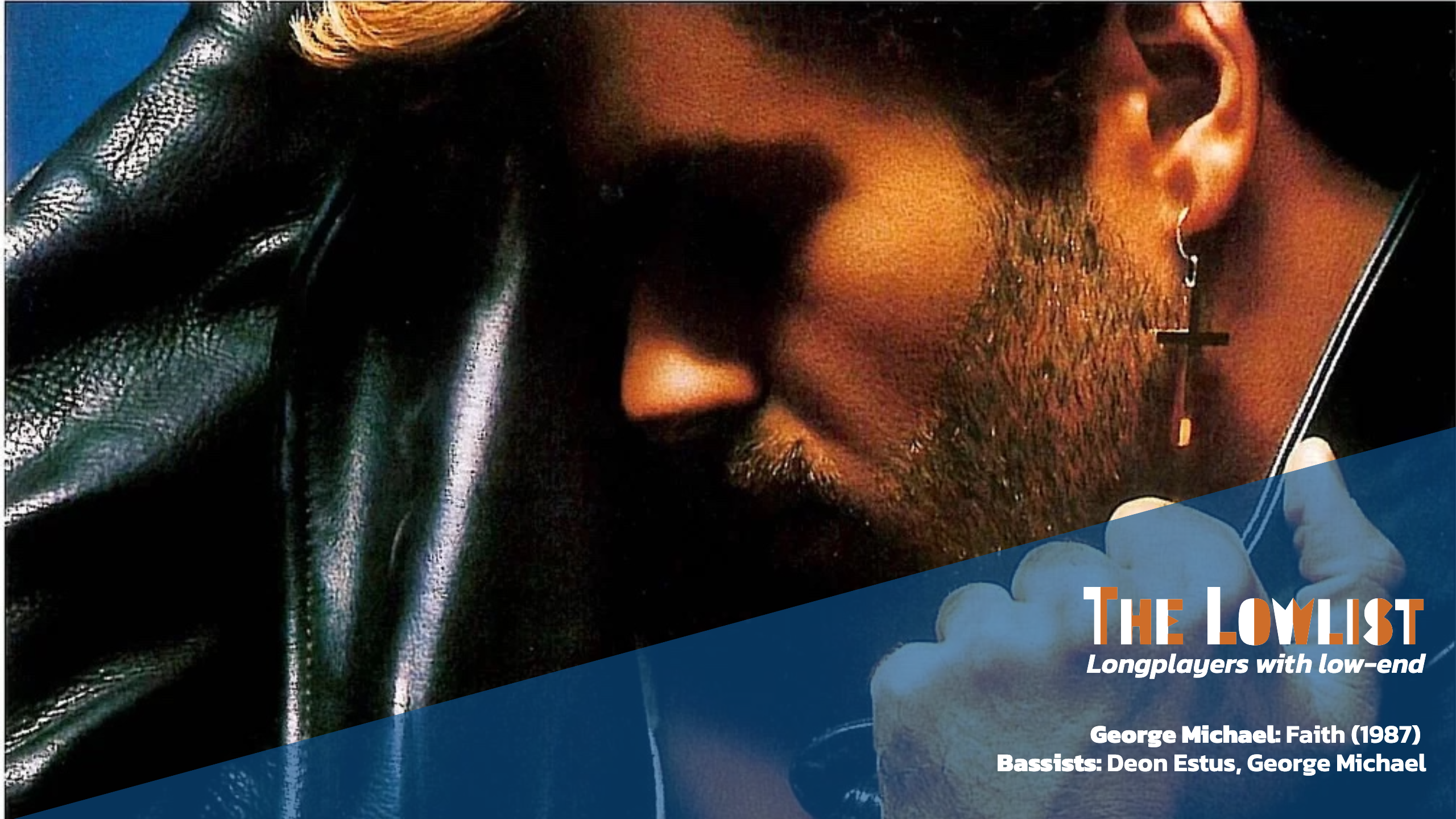
Released towards the end of 1987, George Michael’s first solo outing, Faith, highlighted what most people had known for years – that George Michael was a truly gifted singer-songwriter and that Wham! had merely been a stepping-stone for his musical talents. The album produced six singles, with George writing and producing the album and sharing bass duties with Deon Estus, who had already contributed many a memorable Wham! bassline.
Deon Estus was born in Detroit where he learned bass guitar under the tutelage of James Jamerson. Influenced by Stanley Clarke and Detroit players like Ralphe Armstrong and Lamont Johnson, who he replaced in Detroit funk-soul band Brainstorm. Brainstorm scored some minor hits in the late 70s and Deon wrote the track Positive Thinking from their 1978 album Journey To the Light.
After Brainstorm, Estus did some session work, including a stint in Marvin Gaye’s live band. Gaye had moved to Ostend in Belgium, and Estus settled there too. By 1982, he’d moved to Dublin to work with Phil Lynott. Lynott was working on his solo career – The Phillip Lynott Album was released in September that year – and possibly wanted a bass player to help tour it. In Dublin, he was approached by George Michael’s publisher, Dick Leahy, who asked him to work with George on some songs that he had written. Estus became a part of Wham! and continued to work with George Michael on his solo material.
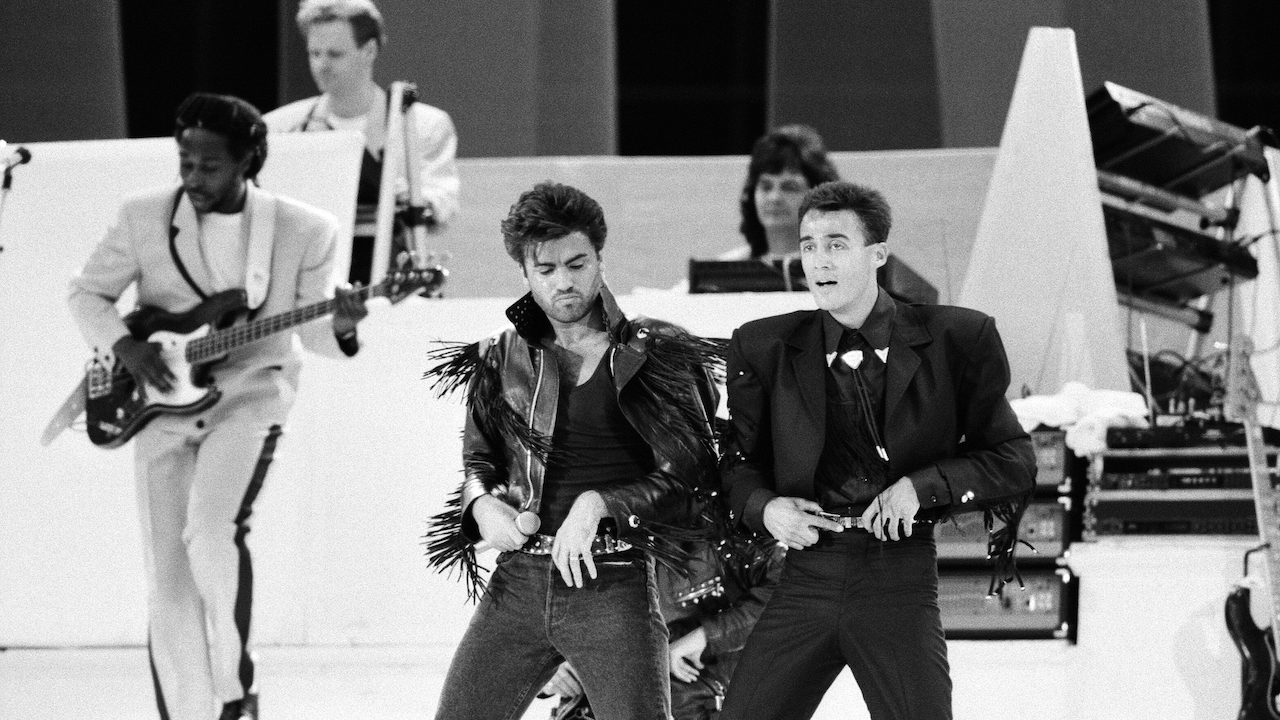
Michael’s debut solo album Faith was huge, selling in excess of 20 million copies globally: in the US, it stayed in the chart for almost a year, sitting at number one for 12 weeks. The tour, heavy video rotation on MTV, sizeable radio hit singles – four of which reached number one in the US – and the album’s crossover onto black radio and soul charts due to its R&B-flavoured production – all contributed to its success.
Bass-wise, the album has a smattering of keyboard tones from a Juno-106, no less – it was 1987, after all! – while Estus was well-known for favouring Fender Jazz basses at the time. “I came from that old school thing from Motown,” he said, “and James Jameson was my bass teacher.”
His basslines, as well as the parts recorded by George himself, were recorded direct through the desk at PUK Studios in Denmark. And although all the instruments were recorded in the live room, the rhythm section never actually played together.
The album opens with the chorus of the Wham! hit Freedom played on an organ, before we get to the opening guitar chords of Faith. A guaranteed toe-tapper, the Bo Diddley-style rockabilly feel masks a simple but highly effective bass part from Estus. A thick, rounded tone does the job nicely, its effectiveness lying in its simplicity.
All the latest guitar news, interviews, lessons, reviews, deals and more, direct to your inbox!
Father Figure is a sultry, atmospheric slow-burner featuring keyboard bass. It’s said that George didn’t want an album full of session players filling it with licks and frills – he simply wanted the sounds that he heard in his head, which explains why the credits list for the album is so small.
George Michael played all of the instruments on I Want Your Sex (Part 1), Hard Day, and Monkey (with the exception of Roddy Matthews' guitar part). Engineer Chris Porter told Sound on Sound: "He had the rhythmic ideas and desired feel inside his head, he didn't want the artistry of talented players. No matter how good they are, session musicians must be embedded within a particular environment; familiarising themselves with what the producer and featured artist are trying to achieve.
"In those days, each of those musicians might be working on five or six different things a week, and with them they'd bring a current trend or favorite lick. Well, George didn't want their favorite licks. He wanted his ideas, and that's why he decided to play a lot of the parts himself.
"We would spend a day creating a bass part if he thought he needed to play it himself. It wasn't an ego thing; he was looking for a specific feel and, instead of Deon's expertise and outrageous natural ability, he just wanted something really simple over which he could perform a magical vocal.”
I Want Your Sex is a three-part piece, with a dancey, keyboard-laden first part which was released as the first single some five months before the album hit the shelves. The second section (above) features Estus on bass and a horn section. His bass part is a mix of fingerstyle and slapped passages, with a tight but slinky bass tone from his Jazz. Part 3 closes the original release and is something of a late-night, laidback album finale.
On One More Try Estus delivers a performance not unlike that of George’s 1984 solo hit Careless Whisper. His thick fingerstyle tone has enough projection to bring the bass guitar to the forefront: some of the glissando notes are sublime. Hard Day on the other hand is a funkier tune, very much George in its feel, while the clipped keyboard bass would have sounded equally good as a slapped bass part. Look At Your Hands harks back to the 60s influences heard on Wham! tracks like Freedom, again with Estus providing a throbbing bass part that drives the song along.
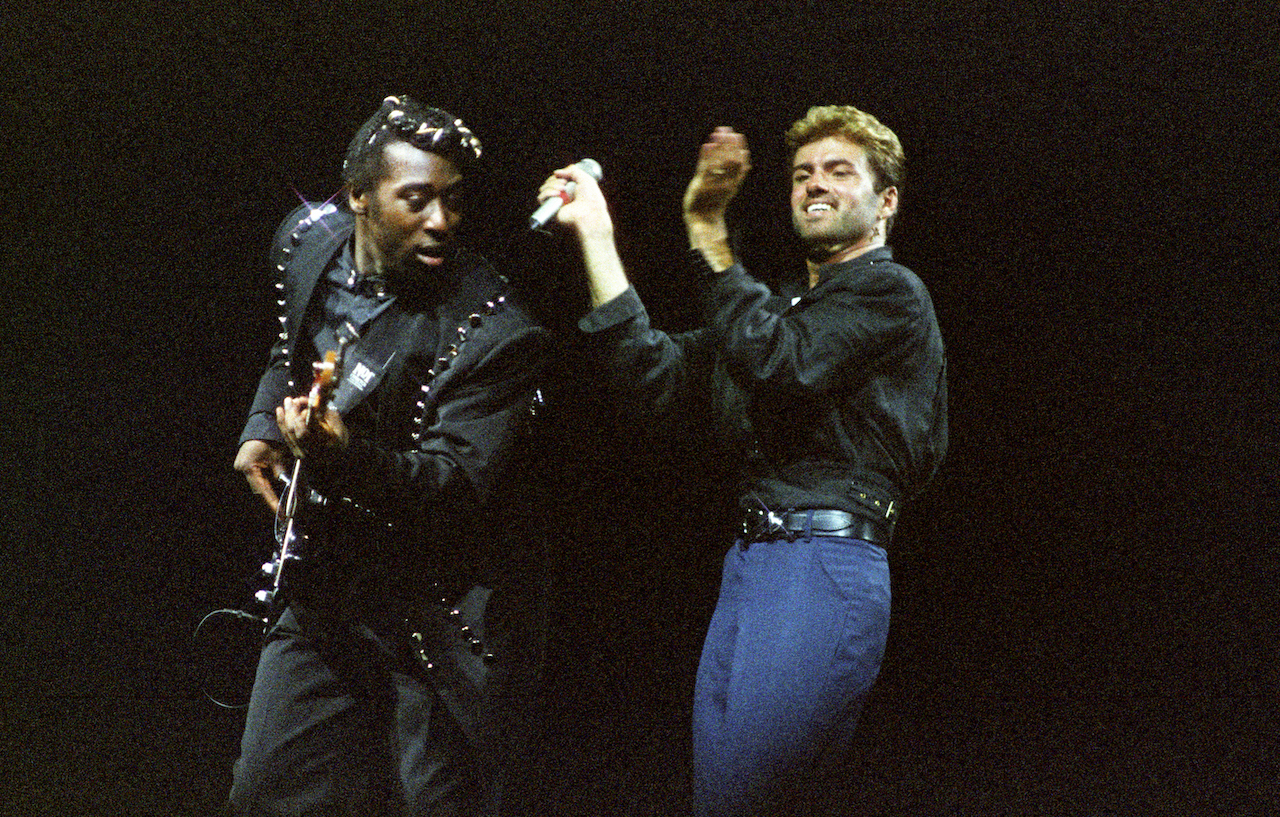
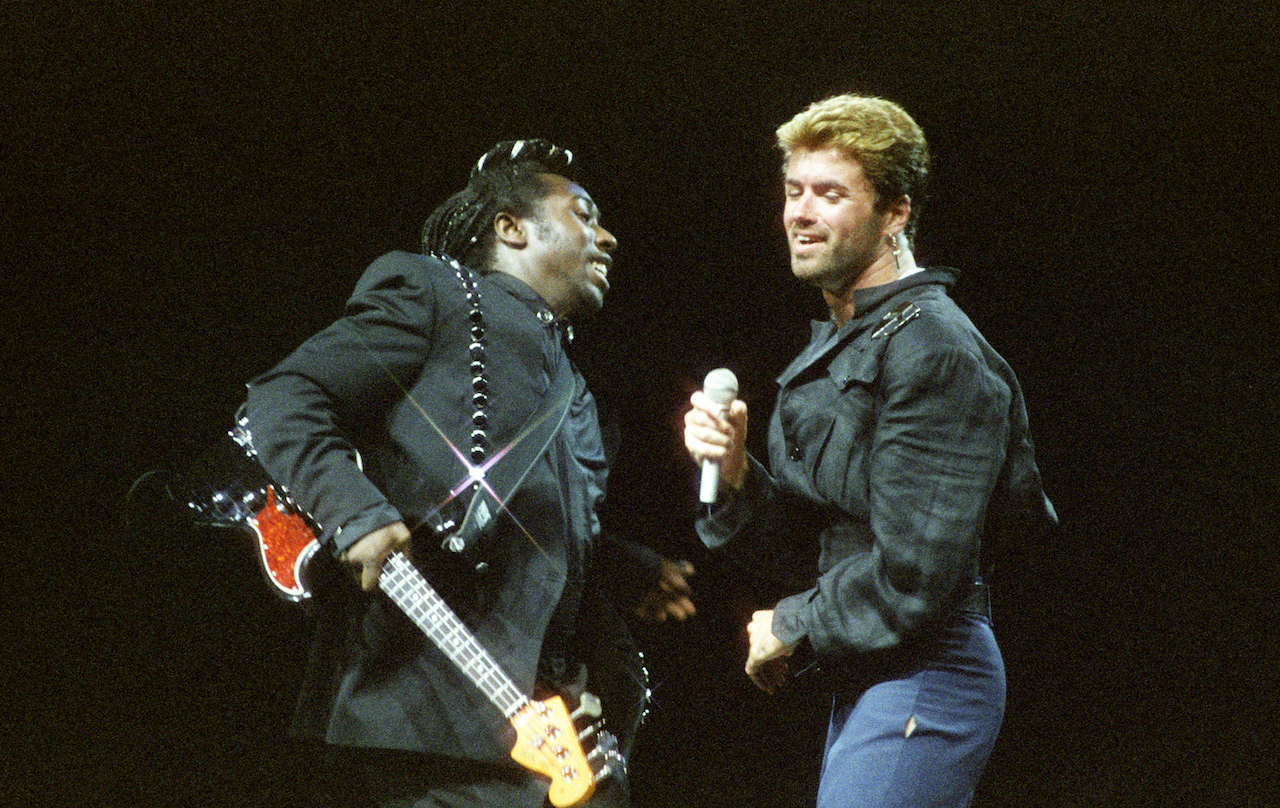
The jazz-infused swing of Kissing A Fool is the only track to feature a live drum kit, apart from occasional percussion. This track gave session supremo Ian Thomas his big break: the live kit brings the track to life. George is credited with bass duties, but it’s hard to tell if it’s electric fretted bass, fretless or even upright.
Estus had a solo album out at the same time as Faith, and so he supported George Michael on tour. “I was the opening act for George Michael,” he said, “and then I came on again for another two or three hours and played bass and sung with him.”
In 1999, George Michael and Deon co-wrote Estus’ biggest solo hit, Heaven Help Me, which went to no.5 in the US, aided by Michael’s prominent backing vocals. Estus died in October 2021, Wham!’s Andrew Ridgeley commenting that he was a "lavishly gifted bass guitarist, a charismatic and impish character and a rock of the WHAM! rhythm section” while Spandau Ballet’s Martin Kemp said that "his bass playing helped create the sound of the 80s. A brilliant talent."
Faith is available to buy and stream. A new documentary on Wham! premieres on Netflix, 5 July.




